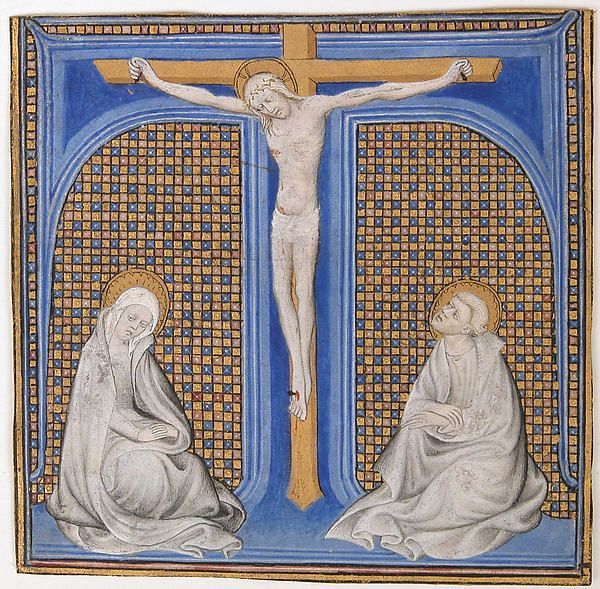Explaining the Examination of Conscience
The importance of the Examination of Conscience:
Saint Ignatius wants those in the Exercises to gain self-knowledge by practicing the examination of conscience. With his fellow Jesuits, progress in the spiritual life was not just about praying; a large part of their effort was spent examining their thoughts and actions, so they would be able to work and pray more effectively. The ideal was to find a balance between prayer and work, this being aided by frequent examination.
Knowledge gained through experience is invaluable. This means to actually do the meditations – not just to learn about how to meditate, to actually perform acts of charity – not just to read about them. These activities, which are so important to spiritual advancement, are aided by frequent examination. One acquires knowledge of where they have succeeded or what changes are needed.
Examination:
Ignatius offers helpful steps for doing an Examination. He says these steps are for doing a General Examination of Conscience (not examining any particular fault, but in general), but these steps can really be applied to any type of examination:
- Begin by giving thanks to God for favors received from Him
- Ask for the grace to know my sins and rid myself of them
- To make an account of my soul: examining your thoughts, words, and then deeds
- To ask pardon of God
- To resolve to amend with the help of God’s grace and end with a prayer (Our Father)
While doing the Spiritual Exercises, you will not do the Examination of Conscience in the same way you will when outside the Exercises. Here, we consider 3 types of Examination of Conscience: Examining your meditations, Particular examination, and the General examination.
Examination your meditations during the retreat [75]
After an exercise is finished, either sitting or walking, I will consider for the space of a quarter of an hour how I succeeded in the meditation or contemplation. If poorly, I will seek the cause of the failure; and after I have found it, I will be sorry, so that I may do better in the future. If I have succeeded, I will give thanks to God our Lord, and the next time try to follow the same method.
We can also mention here again that your most important activity during the day is the time of meditation (unless of course you are able to attend Mass). Everything else is ordered to these times which is why it is important to separate your free time from the time for each meditation. St. Ignatius shows this in the way he advises we prepare for our meditations. For example, he says, as we are falling asleep, for a few moments I will think of the hour when I have to rise, and why I am rising and briefly sum up the exercise I have to go through. For the space of a Hail Mary.
A Particular Examination of Conscience [24-31]
This means to consider a particular sin or defect you are trying to correct or diminish. The Particular Examine can also be for a virtue one is exercising themselves for acquiring.
Ignatius recommends doing an examination around lunchtime and again in the evening. He says, after lunch, I should ask God our Lord for the grace I desire, that is, to recall how often I have fallen into the particular sin and to avoid it for the future. Then follows the examination, I should take an account of myself with regard to the particular point which I am resolved towards. Going over the single hours or periods from the time of wake-up to the present moment. After accounting for the times of failure, I will review my resolution, and strive to do better in the second part of the day. I will then do the same in the evening.
If it is helpful, Ignatius says you can write down the number of times of failure, for seeing progress in time.
While in the Spiritual Exercises, the particular examination is focused on faults with regard to Exercises [90]. Each day around lunchtime and evening you should examine yourself on one particular thing that you know is probably difficult for you, but important for the retreat. For example: keeping the silence, completing the full hour of meditation, keeping a peaceful disposition in difficult moments, etc. Outside the Exercises, one can examine themselves on a certain fault or virtue.
General Examination [32-43]
Ignatius says the purpose of the General Examination of Conscience is to purify the soul and to aid a person with confession. By the General Examination, one seeks a deeper knowledge of their sinfulness — you examine thoughts, words, and actions. It consists of a broader consideration; the particular looks at only one thing. The general examination can be done at the normal time — midday and evening. It normally takes more time, but it should not be taken to excess. Doing a general examination for a day or two will help a person make a more perfect Confession during their Spiritual Exercises.
Here might be an example of how a person uses several different types of examinations during the retreat: A person do a particular examination on maintaining silence during the retreat. In order to make a good confession, he may stop the particular examination for a short period of time, and instead, do the General Examination. After confession, he would return the particular examination.
Almost as important as the actual examination, is forming the habit of doing the examination twice a day. If it is not kept simple, it will be hard to keep doing it day after day.
Examination in and outside the Spiritual Exercises:
Examination should continue after finishing the Exercises, but obviously, it will be different in some ways. While in the retreat, the Particular Examination is for doing the retreat well. One commits to 15 minutes after each meditation and a particular aspect to be considered at midday and evening (maintaining silence, doing the full meditation, etc).
Outside the retreat, it is recommended to have two examinations during the day. This will normally be on a particular fault or virtue. In the Spiritual Life, progressing in one area means we will progress in all others as well. Regular examination is not about perfect/complete knowledge, but about quick reviews that keep a person moving in the right direction. Examinations should be done regularly but simply.
Concluding Point:
This daily examination is one of the most efficacious means in directing oneself seriously towards sanctity. St. Alphonsus Rodriguez, a Jesuit around the time of Ignatius, cites a long list of saints from both the Patristic period and later eras, who vehemently recommended it as a daily activity: St. Augustine, St. Basil, St. Anthony of the Desert, St. Bernard of Clairvaux, St. John Chrysostom, and others. Citing a different class of authority, he even mentions how it was practiced by pagan philosophers such as Pythagoras, Seneca, Plutarch, and others. St. Ignatius of Loyola included in his constitutions a command for the members of the Company to do it two times a day. “In some sort of way,” says Rodriguez, “he esteemed this examination more than meditation, because by the aid of examen we put in execution the resolutions we drew from meditation, to the mortification of our passions and the extirpation of our vices and defects. …
(Fr. Fuentes book on Spiritual Direction)

Take, Lord,
and receive all my liberty, my memory, my understanding, and my entire will, all that I have and possess. Thou hast given all to me. To Thee, O Lord, I return it. All is Thine, dispose of it wholly according to Thy will. Give me Thy love and Thy grace, for this is sufficient for me.
(Spiritual Exercises #234. Louis Puhl SJ, Translation.)


